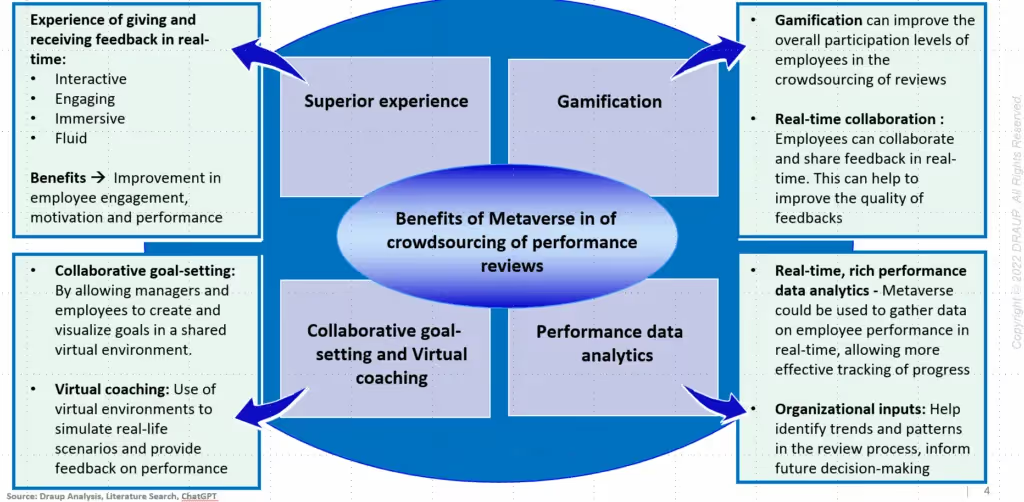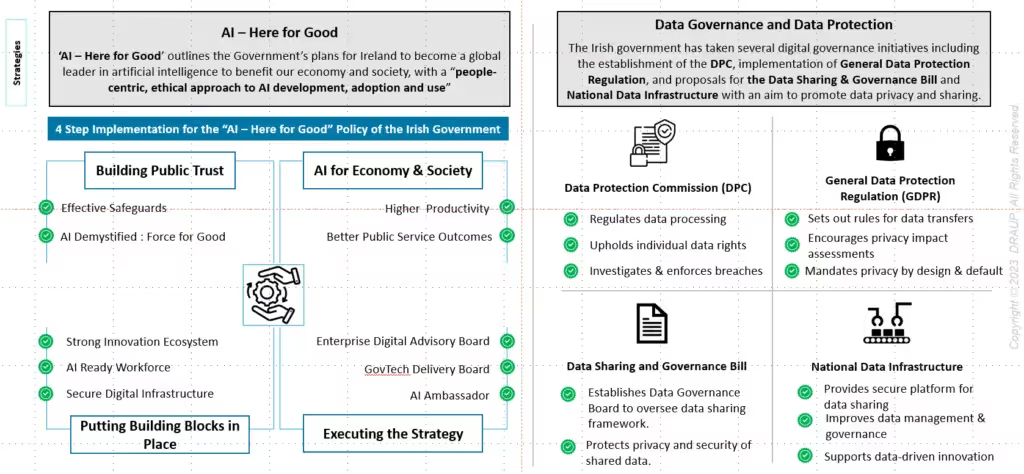Discussing Next-Generation Skills Framework at the G20
Draup was invited to participate as a knowledge partner at a G20 event last week, discussing the next-generation skills framework. It is a great learning experience to see how different countries view digital skills frameworks within the context of generative AI and Automation. There is a growing emphasis on the importance of power skills, including empathy, storytelling, articulation, Emotional Intelligence, Resilience, and similar skills. Many discussions suggested that we should view these skills as part of the innovation stack. There were also discussions around how automation and generative AI could cluster certain tasks and bring efficiency but may also create new tasks.
I came across an interesting paper (working paper) titled Not all Technological Change is Equal: How the Separability of Tasks Mediates the Effect of Technological Change on Skill Demand Combemale et al. at Carnegie Mellon University. This paper argues that technological change brings about the automation of tasks and consolidation of tasks.
In essence, this means that we could view the skills in three categories: (this is Draup interpretation of the paper as the paper is still a working paper and conclusions have not been published yet)
- Category1 Skills: Core skills that will help organizations innovate in a digital environment (these are various software, machine learning, and data science type skills)
- Category2 Skills: Skills associated with Digital Platforms and common digital tools to complete the tasks (in other words, various SaaS tools)
- Category3 Skills: Essential power Skills that are required for effective collaboration and innovation
For companies, for opportunities to upskill and reskill the existing workforce, Category 2 skills should be studied and understood well. The skills associated with Digital Platforms/Digital tools provide the maximum opportunity to move most of the workforce into the digital bandwagon.
Let us look at how this categorization may play a role, like in the role of a financial analyst. Using GPT3, the financial analyst may solve for, automate, and optimize the typical data-wrangling activities. Thereby It allows learning more about Oracle Hyperion Planning or SAP Business Planning to publish detailed forecasts. The analyst may focus more on adaptive insights and deeper storytelling (skills from Category 3)
Similarly, in HR, the digital platforms and advancements in Metaverse will help us transform crowd-sourcing performance reviews and measurements

The opportunity needs to be mapped out by role to understand the roles of Obsolescence and Roles of Redefinition. We are working on several projects to this effect. Digital transformation can be accelerated by tapping into unexplored potential, deepening roles, and broadening the impact of this process.
Such a framework provides companies to look at tapping unbelievable human potential. Enterprises have to take the lead (HR has an opportunity here) to define data governance and data protection and what it takes to be a human in this journey
Recently, as part of the Responsible AI Institute studied, Draup studied the frameworks developed by Ireland. We are sharing this framework as many elements apply to an enterprise. For example, the Irish framework emphasizes the importance of ensuring that AI systems are transparent and that their decision-making processes can be explained and understood. This framework aligns with the principle of explainability, which is essential for building trust in AI systems. The framework also emphasizes the importance of human oversight of AI systems, which can help ensure they are used fairly and ethically.
Ireland AI and Ethical Data Governance (A framework for HR to leverage and think about an Enterprise version of the same)

Overall, we are pretty excited about HR’s role under emerging circumstances. If we plan the initiatives correctly, we can accelerate transformation and adaptation and make the enterprises genuinely care for a great workplace.







.svg)
